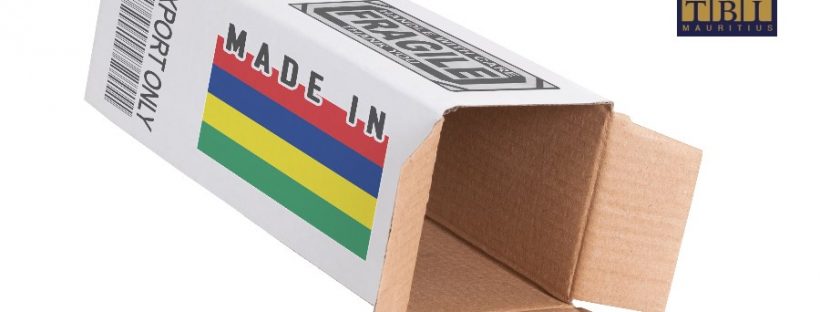Mauritius is an established manufacturing hub, nestled conveniently on the trade route between Europe, Asia and Africa. The two main products dominating this industry in Mauritius over the last few decades were textiles and sugar. In recent years the offering has become more diversified and a multitude of incentives for manufacturers have been created, both fiscal and practical, that can help those looking to use Mauritius as a global manufacturing hub. It is our intention to provide a simple guide explaining what the advantages of both manufacturing and exporting from Mauritius are.
Why manufacture in Mauritius?
1 – Business Environment
Mauritius is renowned for its ease of doing business and is ranked 1st in Africa for almost every business indicator. It is quick and simple to set up a company and an offshore bank account, even as a foreigner setting this up remotely. There are checks and documentary requirements as you would expect from any reputed jurisdiction. You will need to have a corporate service provider administering the entity or structure if it is to do business globally. It is relatively simple to relocate to Mauritius, buy property and get your occupation permits.
There is a Freeport and modern infrastructure in Mauritius with excellent global logistics by both air and sea. The local population is well-educated, cost-effective and bilingual, speaking English and French. Madagascar is often used for the outsourcing of certain activities, especially for textiles, as this brings the costs even lower. One can buy commercial property in Mauritius as a foreigner and can rent factories and warehouses for low prices.
2 – Fiscal Incentives
These are the current incentives for manufacturing in Mauritius listed on the Economic Development Board’s website as of the time of writing this article.
- 8-year income tax-holiday for companies engaged in the manufacturing of pharmaceutical products, medical devices and high-tech products
- 3 per cent corporate tax on profits derived from exports of goods
- No import duties on equipment and raw material
- No export duties in Mauritius
- VAT on raw materials is payable at customs clearance but reimbursable on exports
- Investment Tax Credit of 5% – 15% per year (i.e. 15% – 45% over three years) for investment in high-tech manufacturing equipment (the credit amount will depend on the nature of the activity)
- Accelerated depreciation of 50% on machinery, equipment and construction of industrial premises dedicated to manufacturing activities
- Companies can claim a double deduction in respect of qualifying expenditure on R&D until income year 2021-2022
- No Registration Duty and Land Transfer Tax on any transfer of a building or land earmarked for the construction of a building, to be utilised for setup of qualifying high-tech manufacturing activities
- Accelerated depreciation of 50 percent per annum on capital expenditure incurred on R&D
3 – Preferential Market Access and Unique Opportunities
Mauritius has in place several regional Agreements, such as SADC, COMESA and IOC but also AGOA and the Interim EPA with the US and the EU respectively. Each offers different trade and access benefits depending on where one is exporting to. Mauritius has many bilateral treaties with other countries in Africa and beyond that give further tax, business and protection benefits. These agreements are one reason why Mauritius is a very popular choice for trading and holding companies, especially when dealing with countries in Africa that are less stable or have high withholding taxes.
Mauritius has an Exclusive Economic Zone of 1.96 million square kilometres and a jointly-managed agreement with the Seychelles for another 396,000 square kilometres. There is therefore a thriving seafood processing sector in Mauritius with a strong focus on tuna. Due to the significant amounts of sugar being processed in Mauritius there are a number of very credible and renowned rum–makers.
Summary
For the many reasons listed above, Mauritius is strategically and geographically a very good place to set up a manufacturing or trading company. Whether a Mauritian company exports goods directly from Mauritius that it manufactures, or buys goods from Asia for example and ships them straight to Africa or Europe, the tax on profits in Mauritius are only at 3% with tax on dividends at 0%. Add to that a stable banking system used to trading globally, the Privy Council of England and Wales as the Apex Mauritian court, as well as the low-cost labour and safe idyll existence in Mauritius, then it is no wonder that demand for setting up Mauritian companies is high.
About the Author
Philip Tsalikis is a practising UK barrister based in Mauritius and registered there as a foreign lawyer. He is the founder of TBI Mauritius, a consultancy firm based in Mauritius but with a global reach and network. TBI assists individuals and businesses with their investment, setup and operations in Mauritius, and throughout Africa.
Disclaimer
Our aim with our articles is to make them digestible. We keep them short and relevant but do not update them. They are not designed to be legally relied upon. This article contains no legal, tax or financial advice, all of which should be sought from relevant professionals.
Please contact us via our website, via email to info@tbimauritius.com or via the form below.
